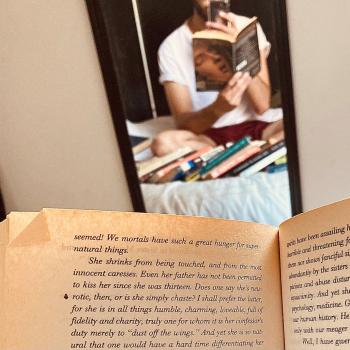Several of my students came into my classroom last Friday to ask me if I saw the livestream of the massacres in New Zealand. My immediate reaction was that of shock, “are you crazy? Why would I ever want to watch that?” I took it for granted that anyone who watched that would be repulsed and horrified. The many students who watched it (before most major social media sites took it down) described is “crazy” and “insane,” while others described it as being “too bad.”
I’ve never felt such a disconnect from my students before. I knew that if I watched people being shot and killed…even if I were to just watch someone bleeding from a gunshot wound, I would probably want to throw up and would end up having wretched nightmares.
Some students argued that it was worth watching because it spread awareness about gun violence and hatred. Maybe if more people watched it, people would support stricter regulations on gun control.
While that might be true, watching it in passing while scrolling through one’s social media feed sounds like an awfully reductive way of approaching such an act of evil.
This is where the disconnect happens. My students seem to be increasingly desensitized to the sacredness of human nature. They lack the awareness that the difference between good and evil emanates from eternal truths that precede and define our existence. Accordingly, the difference between good and evil has been flattered by a calculative utilitarian measure.
I’m disgusted watching people be murdered not just because it’s gross and gory, but because it offends me morally. It demonstrates something that goes utterly against the truth of human nature. Murder is not just bad because innocent lives are lost. It’s an offense against a person’s sacred, God-given dignity. Worse, it is an offense against the murderer’s divine call to give to others and foster their growth—a call universal to all human beings.
Watching a video of such a vile act being perpetrated 50 times while aimlessly scrolling through one’s news feed grossly reduces the atrocity to an abstraction, a fantasy…..something utterly disconnected from the truth of our humanity.
If it had been their own family members being killed, I doubt my students could bear to watch it. They would be faced with the horrific reality of murder. They will have experienced its consequences first hand. It would cease to be an event that happened to some random people in a video for it will have affected their real lives.
The video serves as a filter that dehumanizes the event. It makes it into something that is disconnected from our reality.
Many of my students say that the video reminded them of videos games they have played. “It seemed like it wasn’t even real.”
This begs the question of why people consume forms of entertainment that portray acts of evil as something mundane and common place. Why do we engage in virtual acts of terror, justifying it as being “just a game”?
I asked some of my students why they play games like that. They didn’t really have an answer….other than that they’re friends played them. I then asked them why they thought people made these kinds of games. “I never thought about it…” I proceeded to explain to them the metaphor of the frog placed in a pot of boiling water.
It amazes me how much entertainment we consume without questioning its implications for our lives and society.
This lack of critical consciousness allows my students to remain content with their utilitarian moral response regarding how the video will inspire politicians to reduce the amount of guns in civilian hands. But if morality indeed involves humanity’s relationship with an ultimate, existential truth, then the utilitarian political solution leaves us wanting. Why would someone commit an act like this? What leads someone to lose sight of his own humanity and that of others?
This lack of regard for ultimate truth goes hand in hand with our society’s mindless consumption of entertainment. If life is inherently meaningless (beyond the moments of meaning we “construct” for ourselves) then all we can really do is distract ourselves from the emptiness of it all.
But if entertainment becomes our replacement for a moral education to truth and goodness, and the entertainment we consume glorifies violence and acts of evil, then can we really be surprised by the proliferation of terrorism? Can we be really be surprised by the blatantly ignorant and inhumane views that people have against others? If meaning in life is really relative to a subjective “feeling”, what happens to the people for whom that feeling has been lost, and seems impossible to recover? Then can we be surprised when those people lash out in senseless acts of terror against others?
A week later, most of my students have forgotten about the video. But these questions still remain at the front of my mind….












